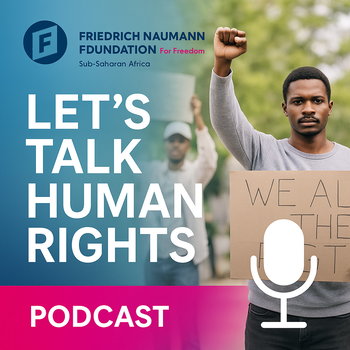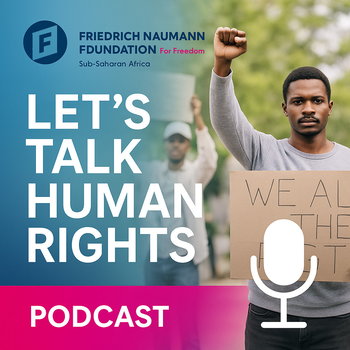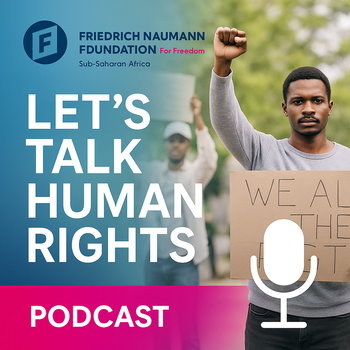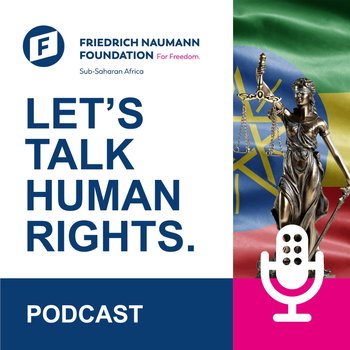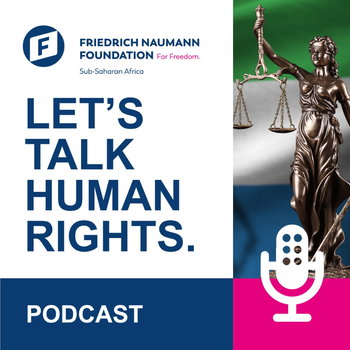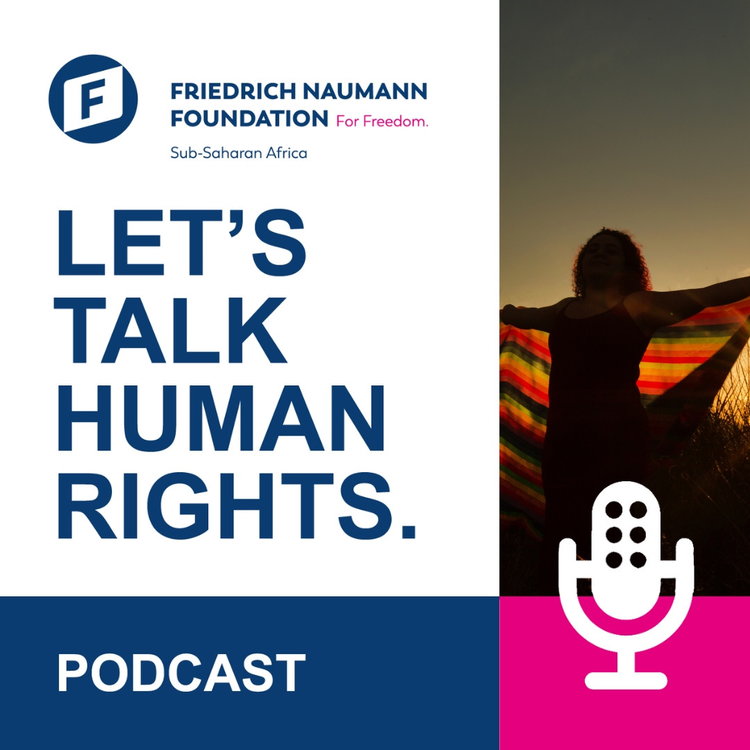
S04.E02 - Access denied! My right to self not authorised. The plight of LGBTQIA+ communities
Loading player...
“Access Denied! My right to self not authorised” The plight of LGBTQIA+ communities in an increasingly intolerant world”.
In 2019, the Friedrich Naumann Foundation launched a campaign titled “An African Thing”. The significance of this campaign was to empirically document how many instances in various African cultures and societies where homosexuality could be found before colonisation. Evidence of this is found in many of the artworks in different parts of Africa such as Ghana and Burkina Faso in the 18th and 19th centuries. For more on this, please see the show notes for the “An African Thing” campaign.
Lesbian, Gay, Bisexual, Transgender, Queer, Intersex, and Asexual Rights, also known as LGBTQIA+ Rights, have been and continue to be a highly debated and controversial topic among many African societies both religiously and culturally. In the majority of African countries, same-sex relationships or acts of homosexuality are punishable by law. This includes public condemnation, incarceration, and in extreme cases also serving the death penalty such as the recent case with the bill in the Ugandan Parliament to exercise the maximum penalty in the form of the death sentence for any support, acts, or defending LGBTQIA+ Rights. To date, countries like Ghana, Kenya, Tanzania, and Nigeria still uphold laws that criminalise homosexuality.
There have been notable changes in recent years in Mozambique, Seychelles, Angola, and Botswana, which have amended their laws not to criminalise LGBTQIA+ rights.
But is it enough?
Sometimes, the phobia transcends the spheres of governments and lawmakers who enforce these laws. Even with an active and engaged civil society, many are still divided on the priority of protection and recognition of LGBTQIA+ communities. When dislikes or differing opinions graduate beyond intolerance and lean towards hatred and acts of violence - this alone makes it criminal.
The prevalence of Gender Based Violence towards members of the LGBTQIA+ community is a phenomenon that goes mostly ignored and often not taken seriously. Similarly, stereotyped mindsets towards members of the LGBTQIA+ community are those that some people see as giving them license to commit atrocities and condone behaviours to diminish the existence of others.
In this episode, launching on International Day Against Homophobia, Transphobia and Biphobia, our host Masechaba Mdaka is joined by Hijabi and Aquiline Isabelle Mkhosie. Hijabi is the pseudonym for our Kenyan guest for her protection.
Hijabi is a queer disabled feminist and a human rights activist. She is an intersectional feminist and continuously creates spaces for women with disabilities, and the LGBTQIA+ community. Hajibi’s work is centered on sexuality, religion, and disability justice.
Hijabi’s work on disability justice is centered on bodily autonomy and integrity; and disabled folks are diverse, living, and affected by different forms of marginalisation. She is also an advocate for inclusive and affirming faith spaces.
In 2019, the Friedrich Naumann Foundation launched a campaign titled “An African Thing”. The significance of this campaign was to empirically document how many instances in various African cultures and societies where homosexuality could be found before colonisation. Evidence of this is found in many of the artworks in different parts of Africa such as Ghana and Burkina Faso in the 18th and 19th centuries. For more on this, please see the show notes for the “An African Thing” campaign.
Lesbian, Gay, Bisexual, Transgender, Queer, Intersex, and Asexual Rights, also known as LGBTQIA+ Rights, have been and continue to be a highly debated and controversial topic among many African societies both religiously and culturally. In the majority of African countries, same-sex relationships or acts of homosexuality are punishable by law. This includes public condemnation, incarceration, and in extreme cases also serving the death penalty such as the recent case with the bill in the Ugandan Parliament to exercise the maximum penalty in the form of the death sentence for any support, acts, or defending LGBTQIA+ Rights. To date, countries like Ghana, Kenya, Tanzania, and Nigeria still uphold laws that criminalise homosexuality.
There have been notable changes in recent years in Mozambique, Seychelles, Angola, and Botswana, which have amended their laws not to criminalise LGBTQIA+ rights.
But is it enough?
Sometimes, the phobia transcends the spheres of governments and lawmakers who enforce these laws. Even with an active and engaged civil society, many are still divided on the priority of protection and recognition of LGBTQIA+ communities. When dislikes or differing opinions graduate beyond intolerance and lean towards hatred and acts of violence - this alone makes it criminal.
The prevalence of Gender Based Violence towards members of the LGBTQIA+ community is a phenomenon that goes mostly ignored and often not taken seriously. Similarly, stereotyped mindsets towards members of the LGBTQIA+ community are those that some people see as giving them license to commit atrocities and condone behaviours to diminish the existence of others.
In this episode, launching on International Day Against Homophobia, Transphobia and Biphobia, our host Masechaba Mdaka is joined by Hijabi and Aquiline Isabelle Mkhosie. Hijabi is the pseudonym for our Kenyan guest for her protection.
Hijabi is a queer disabled feminist and a human rights activist. She is an intersectional feminist and continuously creates spaces for women with disabilities, and the LGBTQIA+ community. Hajibi’s work is centered on sexuality, religion, and disability justice.
Hijabi’s work on disability justice is centered on bodily autonomy and integrity; and disabled folks are diverse, living, and affected by different forms of marginalisation. She is also an advocate for inclusive and affirming faith spaces.

